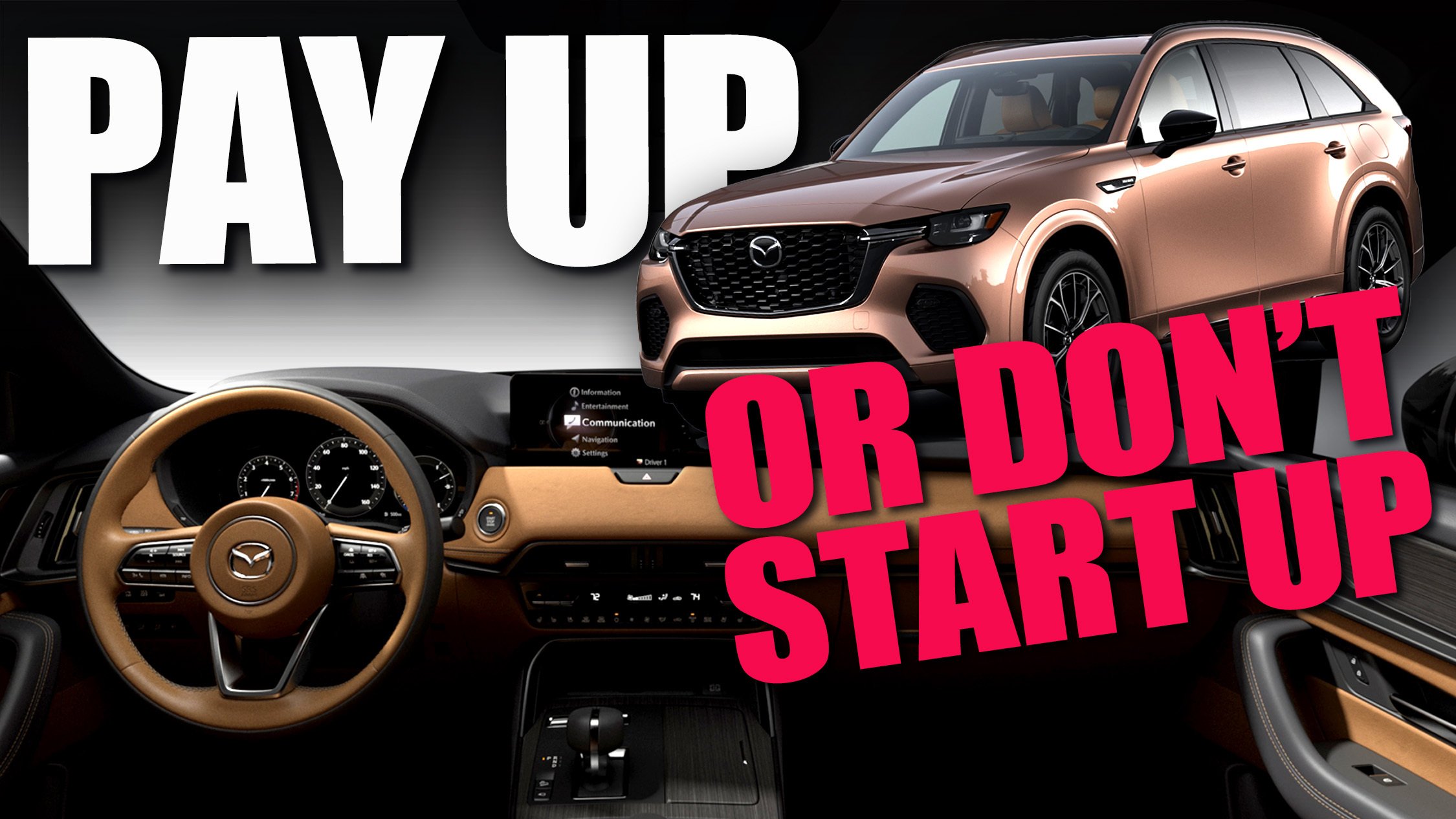Mazda recently surprised customers by requiring them to sign up for a subscription in order to keep certain services. Now, notable right-to-repair advocate Louis Rossmann is calling out the brand.
It’s important to clarify that there are two very different types of remote start we’re talking about here. The first type is the one many people are familiar with where you use the key fob to start the vehicle. The second method involves using another device like a smartphone to start the car. In the latter, connected services do the heavy lifting.
Transition to paid services
What is wild is that Mazda used to offer the first option on the fob. Now, it only offers the second kind, where one starts the car via phone through its connected services for a $10 monthly subscription, which comes to $120 a year. Rossmann points out that one individual, Brandon Rorthweiler, developed a workaround in 2023 to enable remote start without Mazda’s subscription fees.
However, according to Ars Technica, Mazda filed a DMCA takedown notice to kill that open-source project. The company claimed it contained code that violated “[Mazda’s] copyright ownership” and used “certain Mazda information, including proprietary API information.”



It’s a revenue stream you can collect after the vehicle is sold. Continuous cash flow means long term revenue stability for the business.
And its the introduction of a model that can scale. Once you’ve got someone’s account information, you can sell them more shit (or just sell their data to advertisers). This is just the tip of the spear. Tesla, BMW, and Mercedes are all experimenting with Vehicle as a Service product models.
Investors love the possibility of revenue growth, and these programs promise the possibility of high margin after market sales for the life of the vehicle.
Not when everyone is doing it